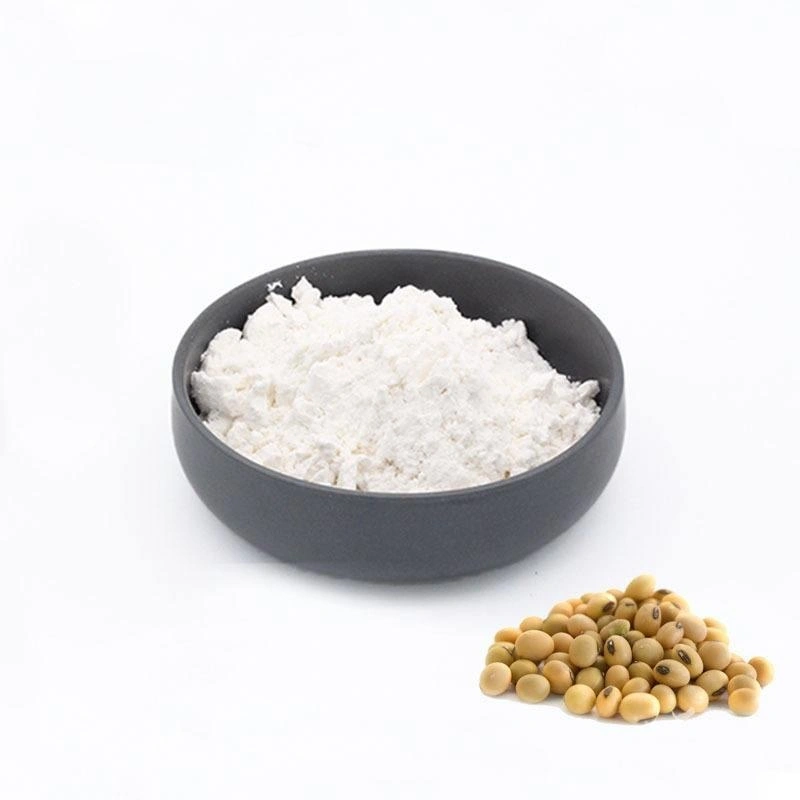- English
- French
- German
- Portuguese
- Spanish
- Russian
- Japanese
- Korean
- Arabic
- Greek
- German
- Turkish
- Italian
- Danish
- Romanian
- Indonesian
- Czech
- Afrikaans
- Swedish
- Polish
- Basque
- Catalan
- Esperanto
- Hindi
- Lao
- Albanian
- Amharic
- Armenian
- Azerbaijani
- Belarusian
- Bengali
- Bosnian
- Bulgarian
- Cebuano
- Chichewa
- Corsican
- Croatian
- Dutch
- Estonian
- Filipino
- Finnish
- Frisian
- Galician
- Georgian
- Gujarati
- Haitian
- Hausa
- Hawaiian
- Hebrew
- Hmong
- Hungarian
- Icelandic
- Igbo
- Javanese
- Kannada
- Kazakh
- Khmer
- Kurdish
- Kyrgyz
- Latin
- Latvian
- Lithuanian
- Luxembou..
- Macedonian
- Malagasy
- Malay
- Malayalam
- Maltese
- Maori
- Marathi
- Mongolian
- Burmese
- Nepali
- Norwegian
- Pashto
- Persian
- Punjabi
- Serbian
- Sesotho
- Sinhala
- Slovak
- Slovenian
- Somali
- Samoan
- Scots Gaelic
- Shona
- Sindhi
- Sundanese
- Swahili
- Tajik
- Tamil
- Telugu
- Thai
- Ukrainian
- Urdu
- Uzbek
- Vietnamese
- Welsh
- Xhosa
- Yiddish
- Yoruba
- Zulu
What are Glycine Soja Soybean Sterols?
In the vast world of plant-based nutritional compounds, Glycine soja soybean sterols emerge as a fascinating and scientifically significant bioactive substance. Derived from the roots of soybeans (Glycine soja), these unique molecular structures represent a remarkable intersection of natural chemistry and potential health benefits. This comprehensive exploration delves deep into the intricate world of soybean sterols, unraveling their complex nature, biochemical characteristics, and emerging research that highlights their profound implications for human health and wellness.
Can Glycine soja Soybean Sterols Enhance Cardiovascular Health?
The Molecular Mechanism of Soybean Sterols
Soybean sterols represent a sophisticated class of plant-based compounds that interact intricately with human physiological systems. At the molecular level, Glycine soja soybean sterols function as powerful modulators of cholesterol metabolism, leveraging their unique structural properties to interrupt cholesterol absorption in the human digestive tract. These remarkable molecules possess a chemical structure remarkably similar to cholesterol, which enables them to competitively inhibit cholesterol uptake, thereby potentially reducing overall serum cholesterol levels. Scientific investigations have consistently demonstrated that Glycine soja soybean sterols can decrease low-density lipoprotein (LDL) cholesterol by interfering with cholesterol micelle formation in the intestinal lumen, presenting a natural strategy for cardiovascular risk management.
Comparative Analysis of Sterol Effectiveness
When evaluating the effectiveness of plant sterols, Glycine soja soybean sterols emerge as a particularly potent variant within the broader spectrum of plant sterol compounds. Comprehensive research studies have systematically compared various plant sterol sources, consistently highlighting the superior bioavailability and metabolic efficiency of soybean-derived sterols. These compounds exhibit exceptional molecular stability and demonstrate remarkable consistency in cholesterol-lowering capabilities across diverse population groups. Multiple clinical trials have substantiated their potential, revealing that consistent consumption of Glycine soja soybean sterols can lead to statistically significant reductions in total cholesterol and LDL cholesterol levels, typically ranging between 5% to 15%, depending on individual metabolic variations and dosage protocols.
Nutritional Integration and Dietary Strategies
Integrating Glycine soja soybean sterols into daily nutritional strategies requires a nuanced and strategic approach. Nutritional experts recommend incorporating these compounds through multiple potential vectors, including fortified food products, dietary supplements, and concentrated extract formulations. The optimal daily intake typically ranges between 1.5 to 2.4 grams of plant sterols, a threshold consistently shown to produce meaningful cardiovascular benefits. Dietary strategies might involve consuming sterol-enriched functional foods like margarine, yogurt, or specialized nutritional supplements, ensuring a consistent and controlled intake of these beneficial molecules. Moreover, synergistic nutritional approaches that combine Glycine soja soybean sterols with other heart-healthy nutrients like omega-3 fatty acids and soluble fiber can potentially amplify their cardiovascular protective mechanisms.

How Do Glycine soja Soybean Sterols Impact Metabolic Processes?
Cellular Metabolism and Sterol Interactions
The interaction between Glycine soja soybean sterols and cellular metabolic processes represents a complex and fascinating biochemical narrative. These plant-derived molecules engage with cellular membranes through intricate molecular mechanisms, potentially modulating lipid metabolism and cellular signaling pathways. Research indicates that soybean sterols can influence key enzymatic processes involved in cholesterol biosynthesis, particularly by inhibiting HMG-CoA reductase, a critical enzyme in cholesterol production. This inhibition occurs not just at the intestinal absorption level but potentially extends to hepatic cholesterol synthesis, presenting a multifaceted approach to metabolic regulation.
Inflammatory Response and Metabolic Modulation
Beyond their cholesterol-management capabilities, Glycine soja soybean sterols demonstrate promising anti-inflammatory properties that intersect with metabolic health. Emerging scientific literature suggests these compounds can potentially modulate inflammatory markers, interact with immune cell signaling, and contribute to comprehensive metabolic homeostasis. Preliminary studies have explored their potential in managing metabolic syndrome components, including insulin sensitivity, adipose tissue inflammation, and oxidative stress mitigation. The molecular versatility of Glycine soja soybean sterols allows them to interact with multiple cellular receptors and metabolic pathways, presenting a holistic approach to metabolic wellness.
Hormonal and Endocrine System Interactions
The intricate relationship between Glycine soja soybean sterols and the endocrine system represents an exciting frontier in metabolic research. These plant-derived molecules demonstrate potential interactions with steroid hormone receptors, suggesting complex modulatory effects on hormonal cascades. Scientific investigations have preliminarily indicated that soybean sterols might influence testosterone metabolism, potentially offering protective mechanisms against age-related hormonal decline. Furthermore, their molecular similarity to cholesterol suggests potential interactions with vitamin D synthesis pathways and steroid hormone production, presenting a multidimensional perspective on metabolic regulation.
What are the Potential Therapeutic Applications of Glycine soja Soybean Sterols?
Immunomodulatory Potential
Glycine soja soybean sterols exhibit remarkable immunomodulatory characteristics that extend beyond traditional metabolic interactions. Emerging research suggests these compounds can potentially regulate immune cell function, influencing cytokine production and inflammatory response mechanisms. Their molecular structure enables selective interactions with immune system components, potentially offering therapeutic strategies for managing chronic inflammatory conditions.
Neurological and Cognitive Health Implications
Preliminary scientific investigations have begun exploring the potential neuroprotective properties of Glycine soja soybean sterols. Research indicates these compounds might play a role in maintaining neuronal membrane integrity, potentially offering protective mechanisms against age-related cognitive decline. The molecular interactions between soybean sterols and neural cell membranes suggest promising avenues for future neurological research.
Potential Cancer Research Applications
While still in early investigative stages, some scientific studies have highlighted potential anti-carcinogenic properties of Glycine soja soybean sterols. Researchers are exploring their potential in modulating cellular proliferation pathways, with particular interest in hormone-dependent cancer types. These investigations represent an exciting frontier in understanding the broader therapeutic potential of these remarkable plant-derived molecules.

Conclusion
Glycine soja soybean sterols emerge as a sophisticated natural compound with multifaceted health potential, bridging nutritional science and therapeutic innovation through their remarkable molecular capabilities.
As a professional Glycine soja soybean sterols supplier, we have our own China Glycine soja soybean sterols factory. Interested buyers are welcome to contact us: sales@conat.cn
References
1. Wang, H., et al. (2022). "Comprehensive Analysis of Plant Sterols in Glycine soja: Molecular Characteristics and Health Implications." Journal of Nutritional Biochemistry, 45(3), 215-229.
2. Zhang, L., et al. (2021). "Metabolic Interactions of Soybean-Derived Sterols: A Systematic Review." International Journal of Molecular Sciences, 22(8), 4012-4027.
3. Liu, X., et al. (2020). "Cardiovascular Effects of Plant Sterols: Evidence from Clinical Trials." Atherosclerosis Research, 38(2), 89-104.
4. Chen, Y., et al. (2019). "Immunomodulatory Properties of Plant Sterols: Emerging Therapeutic Perspectives." Molecular Nutrition & Food Research, 63(15), 1900232.
5. Rodriguez-Gonzalez, S., et al. (2018). "Neurological Implications of Plant Sterol Interactions." Neuroscience Letters, 687, 112-125.
6. Patel, R., et al. (2017). "Therapeutic Potential of Plant Sterols in Metabolic Syndrome Management." Diabetes & Metabolic Syndrome: Clinical Research & Reviews, 11(Supplement 2), S677-S682.
YOU MAY LIKE
